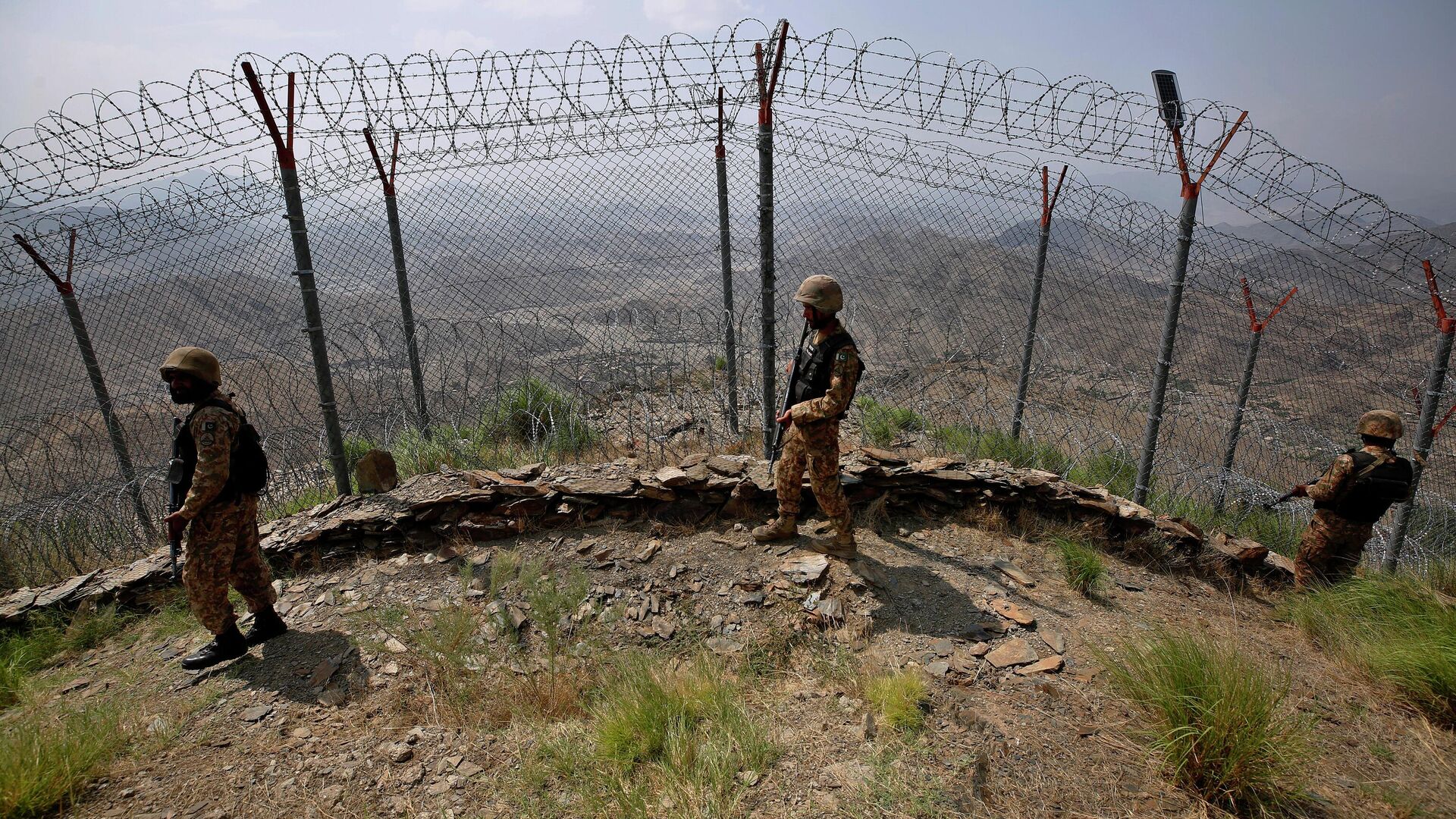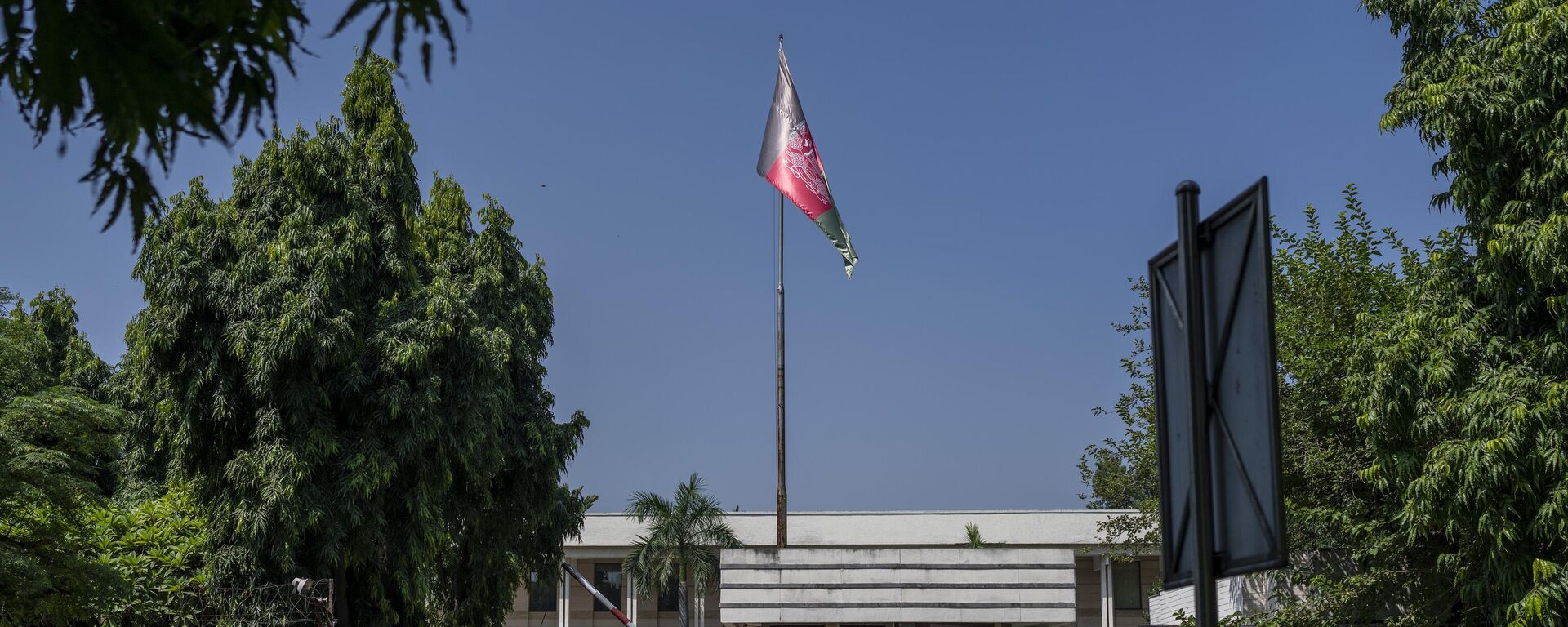https://sputniknews.in/20240206/geopolitics-pushes-pakistan-to-soften-stance-on-afghanistan-6454250.html
Geopolitics Pushes Pakistan to Soften Stance On Afghanistan
Geopolitics Pushes Pakistan to Soften Stance On Afghanistan
Sputnik India
Pakistan appears to be mellowing its criticism of the Taliban administration in Kabul amid the warming of relations between the Islamic Emirate and regional heavyweight India, an Islamabad-based foreign affairs expert has said.
2024-02-06T15:02+0530
2024-02-06T15:02+0530
2024-02-06T15:02+0530
sputnik opinion
bilawal bhutto zardari
pakistan
afghanistan
india
taliban
tehreek-e-taliban pakistan (ttp)
kabul
islamabad
terrorism
https://cdn1.img.sputniknews.in/img/07e6/0c/15/177165_0:148:3073:1876_1920x0_80_0_0_5c68e13dcb0ac50f81fde389e24088b3.jpg
Recent geopolitical circumstances in South Asia seem to have led Pakistan to tone down its criticism of the Taliban*, according to an Islamabad-based foreign affairs expert.Aimen Jamil, a researcher specialising in South Asia and the Middle East, and associated with the military publication Global Defense Insight, made these observations. The expert's comments came in response to remarks made by Pakistan's interim Prime Minister Anwaar-ul-Haq Kakar, who stated that "Afghanistan is absolutely not a threat."The PM's statement thoroughly contradicts his previous accusations against Afghanistan's current rulers. Previously, he asserted that the Taliban* had been operating hand in glove with the Tehrik-e Taliban Pakistan (TTP**), a proscribed terrorist organisation responsible for numerous attacks within the neighbouring sovereign state.In the past, ex-Pakistani Foreign Minister Bilawal Bhutto Zardari claimed that the country's security forces were being targeted by militants from across the border.Islamabad's Calculated MoveIn this context, Jamil observed that Pakistan may have deliberately taken this action to put pressure on the Taliban, especially on issues of cross-border terrorism and refugee management, with the aim of putting regional stability first.While stressing that trust remains fragile, she also pointed out that previous grievances have not been fully addressed.Jamil noted that India's increasing involvement with the Taliban was a matter of concern for Islamabad, while pointing out that the mounting militant activities of the TTP** are straining Pakistan-Afghanistan relations.How Unrest Affects Pakistan's Switch In Ties With AfghanistanOn the other hand, Dr. VC Shushant Parashar, a Research Fellow at the New Delhi-based Centre for Land Warfare Studies (CLAWS), said the shift in Pakistan's behaviour towards Afghanistan might have connotations.Parashar believes that Pakistan is currently facing a crisis in the Balochistan province due to increasing militant activities.*under UN sanctions**banned terrorist group
https://sputniknews.in/20240127/india-pushes-pragmatic-policy-towards-afghanistan-6358279.html
pakistan
afghanistan
india
kabul
islamabad
Sputnik India
feedback.hindi@sputniknews.com
+74956456601
MIA „Rossiya Segodnya“
2024
Pawan Atri
https://cdn1.img.sputniknews.in/img/07e6/0c/13/139630_147:0:831:684_100x100_80_0_0_8fa2b25903e7787fe6a2698552c167df.png
Pawan Atri
https://cdn1.img.sputniknews.in/img/07e6/0c/13/139630_147:0:831:684_100x100_80_0_0_8fa2b25903e7787fe6a2698552c167df.png
News
en_IN
Sputnik India
feedback.hindi@sputniknews.com
+74956456601
MIA „Rossiya Segodnya“
Sputnik India
feedback.hindi@sputniknews.com
+74956456601
MIA „Rossiya Segodnya“
Pawan Atri
https://cdn1.img.sputniknews.in/img/07e6/0c/13/139630_147:0:831:684_100x100_80_0_0_8fa2b25903e7787fe6a2698552c167df.png
anwaar-ul-haq kakar afghanistan not a threat, anwaar-ul-haq kakar afghanistan threat, afghanistan pakistan relations, afghanistan pakistan ties, ttp hideouts afghanistan, india taliban relations, india taliban ties, india taliban cooperation, pakistan taliban ties, pakistan taliban relations, pakistan taliban cooperation, pakistan ttp threat afghan territory, pakistan ttp threat afghan soil,
anwaar-ul-haq kakar afghanistan not a threat, anwaar-ul-haq kakar afghanistan threat, afghanistan pakistan relations, afghanistan pakistan ties, ttp hideouts afghanistan, india taliban relations, india taliban ties, india taliban cooperation, pakistan taliban ties, pakistan taliban relations, pakistan taliban cooperation, pakistan ttp threat afghan territory, pakistan ttp threat afghan soil,
Geopolitics Pushes Pakistan to Soften Stance On Afghanistan
Pak-Afghan ties have remained tense, with Pakistan having accused Afghanistan of providing "safe havens" to terrorists on its soil. However, Islamabad's posture towards Kabul appears to have softened lately.
Recent geopolitical circumstances in South Asia seem to have led Pakistan to tone down its criticism of the Taliban*, according to an Islamabad-based foreign affairs expert.
Aimen Jamil, a researcher specialising in South Asia and the Middle East, and associated with the military publication Global Defense Insight, made these observations. The expert's comments came in response to remarks made by Pakistan's interim Prime Minister Anwaar-ul-Haq Kakar, who stated that "Afghanistan is absolutely not a threat."
The PM's statement thoroughly contradicts his previous accusations against Afghanistan's current rulers. Previously, he asserted that the Taliban* had been operating hand in glove with the Tehrik-e Taliban Pakistan (TTP**), a proscribed terrorist organisation responsible for numerous attacks within the neighbouring sovereign state.
In the past, ex-Pakistani Foreign Minister Bilawal Bhutto Zardari claimed that the country's security forces were being targeted by militants from across the border.
Islamabad's Calculated Move
In this context, Jamil observed that Pakistan may have deliberately taken this action to put pressure on the Taliban, especially on issues of cross-border terrorism and refugee management, with the aim of putting regional stability first.
While stressing that trust remains fragile, she also pointed out that previous grievances have not been fully addressed.
Jamil noted that India's increasing involvement with the Taliban was a matter of concern for Islamabad, while pointing out that the mounting militant activities of the TTP** are straining Pakistan-Afghanistan relations.
"Pakistan might be attempting to counter India's influence by softening its stance. This could be an effort to prevent Afghanistan from solely relying on India," she told Sputnik India on Tuesday.
How Unrest Affects Pakistan's Switch In Ties With Afghanistan
On the other hand, Dr. VC Shushant Parashar, a Research Fellow at the New Delhi-based Centre for Land Warfare Studies (CLAWS), said the shift in Pakistan's behaviour towards Afghanistan might have connotations.
"Pakistan does not want to open another front with Afghanistan, given the already deteriorating relations: the current regime in Afghanistan does not believe in the legitimacy of the Durand Line; the Tribal Provinces and the North-West Frontier Provinces are becoming a part of a larger turmoil between the two countries," Parashar said in a conversation with Sputnik India.
Parashar believes that Pakistan is currently facing a crisis in the Balochistan province due to increasing militant activities.



